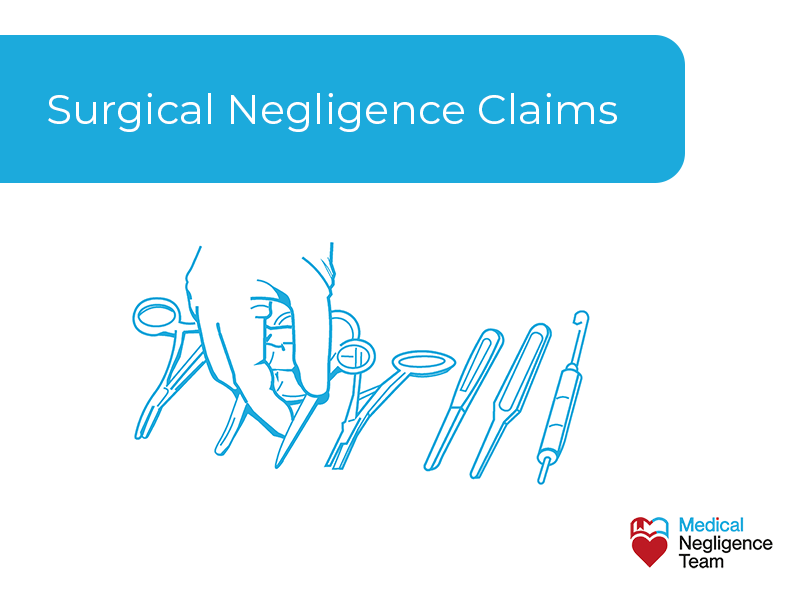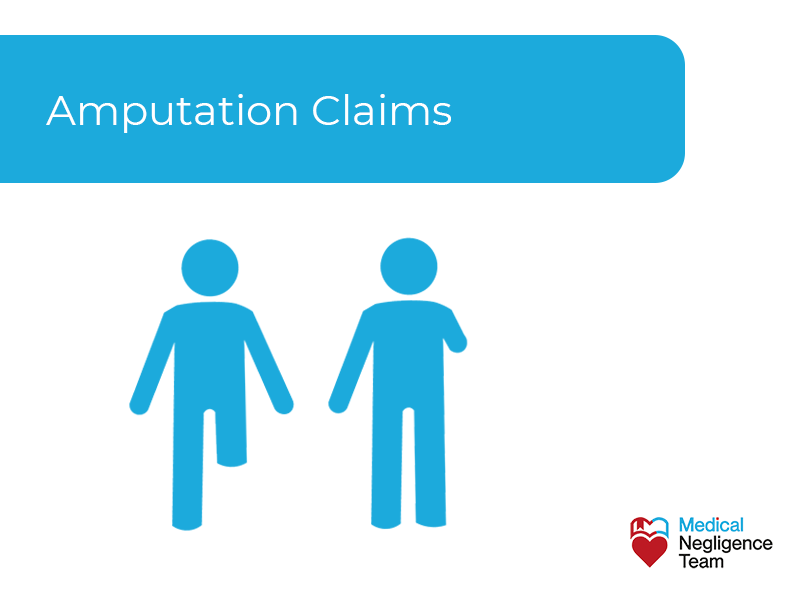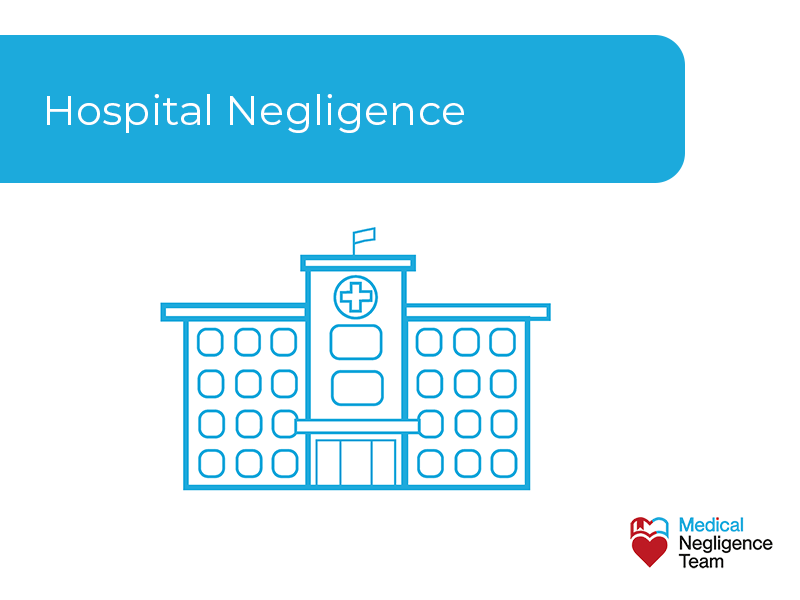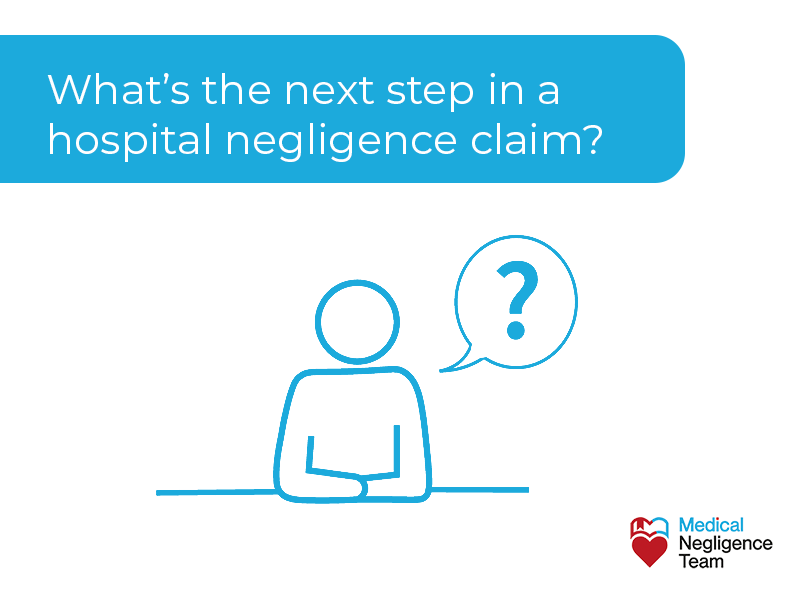Amputation compensation claims are very serious medical negligence claims made by patients.
The amputation of a limb is a life-changing event, and you will need the payment for any negligent surgery.
When it is the amputation of the wrong limb due to medical negligence, the effects on a patient are difficult to quantify.
All claims for medical negligence get the patient the compensation they deserve. Medical negligence is suffering due to a medical professional not doing their job properly.
The compensation due for the amputation claim is for the surgical error and long-term care needs. A specialist medical negligence solicitor will fight your amputation compensation claim.
The Medical Negligence Team has the right medical and legal experts to get you the full compensation you deserve for your amputation claim.

Table of content
What is amputation negligence?
Amputation negligence is when a surgeon removes the wrong limb during surgery or amputates a limb when it is unnecessary.
A fully-trained surgeon should perform such surgery, and it is amputation negligence when it happens to you.
Types of amputation negligence vary, but all have the same result, you lose a limb and you may have a amputation compensation claim.
An amputation claim for negligence takes into account what happened, and you claim compensation for the damages you experience.

Types of amputation negligence
Types of amputation negligence include errors in surgery and lack of due care in your medical treatment. If you suffer from medical negligence, including amputation negligence, you can claim compensation.
With any amputation compensation claim, you may not always realise what happened at first—knowing the types of amputation negligence helps when starting an amputation claim.
Types of amputation compensation claims are:
How to Sue the NHS
If you have been a victim of NHS negligence? If you have, you may need Sue the NHS for damages.
Amputation claim for the loss of a limb due to incorrect medical care
Loss of a limb due to lack of correct medical care can happen with diabetes patients, those with poor circulation conditions and neuropathy problems.
If you have diabetes, incorrect care for your limbs can lead to amputation. Injuries to your feet and hands can cause serious, life-threatening damage, as can pressure sores and other infections.
If medical negligence leads to you not receiving the correct care for your diabetes and you suffer amputation injuries, you have an amputation claim.
Delayed or misdiagnosis in medical care
Delayed or misdiagnosis in medical care leads to many medical negligence claims. Missing the signs of diabetes, sepsis, and cancer is a clear misdiagnosis and can result in the eventual amputation of a limb.
Amputation claims often start with the delayed diagnosis of a severe condition. Delaying correct treatment because of the medical negligence of a doctor only means your condition gets worse.
A loss of limb due to misdiagnosis of a serious condition is medical negligence, and you can make an amputation compensation claim.
Lack of or delayed DVT treatment
Lack of or delayed DVT treatment is when the symptoms of deep vein thrombosis, a blood clot, are missed. The symptoms are excess swelling and pain in the legs or arms. DVT, deep vein thrombosis, usually starts in the leg and the symptoms should be obvious to any doctor.
Failing to recognise the symptoms of DVT means a lack of treatment for the condition, and the delay can do irreparable damage.
The damage can lead to amputation of the limb. It is an avoidable amputation; if it were not for the loss of limb negligence, you would not suffer the life-changing surgery.
Surgical errors
Surgical errors occur when the surgeon removes the wrong limb or surgery goes wrong after a road traffic accident and they have no choice but to amputate.
An amputation claim can also be when the surgeon removes the left foot instead of your right one. Loss of limb negligence should never happen, but it does, and you will have a clear claim for compensation.
Errors during surgery happen when the surgeon does not follow good practice. If the surgical negligence leads to you losing a limb, you can make an amputation compensation claim.
How can amputation negligence occur?
Amputation negligence can occur when the surgeon or other medical professional does not do their job properly.
The surgeon can be tired from doing many operations in the day, but that is not an excuse for removing the wrong limb after a road traffic accident.
Every hospital has a procedure for patient care and for every surgery. When medical professionals do not follow correct procedures, errors can happen.
If you lose a limb due to their negligence, you will have an amputation compensation claim.
Who is responsible for amputation negligence?
The hospital is responsible for amputation negligence in most compensation claims. The NHS Trust employs the staff and is responsible for ensuring that every hospital’s correct medical care procedure is followed.
The NHS describe medical errors such as amputation negligence as a Never Event. When you suffer from a Never Event, you have a medical negligence claim.
NHS Resolution is the department responsible for resolving all medical negligence claims and expert personal injury solicitors will handle your claim for loss of limb compensation.

Can I make an amputation negligence claim against the NHS?
You can make an amputation negligence claim against the NHS, and suing the NHS for negligence is not unusual.
People sue the NHS for loss of limb compensation and receive the money they deserve for the negligent treatment.
Each year there are between 8,000 and 10,000 successful medical negligence claims against the NHS. Suing the NHS for medical negligence can make some people feel uncomfortable but you have an amputation claims process to follow.
We trust in and use the NHS daily and do not expect negligence. It happens, though, and the NHS Resolution has a dedicated team to handle amputation negligence compensation claims.
NHS Resolution has a responsibility to treat patients claiming compensation fairly. Patients pay for the NHS through their taxes, and for that they deserve respect and the best medical treatment.
What can you claim for when suing for medical negligence in an amputation claim?
You can claim compensation for any damages arising in an amputation personal injury claim. There are two types of compensation damages due when suing for negligence, General Damages and Special Damages.
General Damages
General Damages are when you sue for the pain, suffering and the loss of amenity, PSLA, you have experienced due to the medical negligence.
Special Damages
Special Damages include loss of earnings, future care costs, medical costs, and out-of-pocket expenses.
Be sure to keep payslips, receipts and proof of any losses you experience as a result of the medical negligence.
A compensation claim for amputation
A compensation claim for amputation is decided by combining General Damages and Special Damages.
As every amputation claim differs, the amount in General Damages and Special Damages changes for every compensation case.
You could make a successful amputation compensation claim by following the correct steps.
How much can I claim for the amputation negligence?
You can claim from more than £10,000 to over £1M in compensation for the amputation negligence.
It is difficult to give an accurate amount as every case is different, and the circumstances of a compensation claim decide the final pay-out.
To get an estimate of how much you can claim for amputation negligence, make an inquiry below to speak with a member of our team.
The steps involved when suing for amputation negligence
The steps involved when suing for amputation negligence are a part of any successful compensation claim. When you follow them correctly and get all the facts and figures together, your medical negligence solicitor will do the rest.

Step 1: Seek medical advice
Seek medical advice on the injuries you have suffered or are suffering with immediately you realise you experienced amputation negligence.
Step 2: Contact a specialist medical negligence solicitor
Contact a specialist medical negligence solicitor who operates on a No Win No Fee basis and tell them what went wrong. The right personal injury solicitor will look at your case, see where the problem lies, and advise if you suffered amputation negligence.
The Medical Negligence Team also has a 100% Compensation Guarantee scheme, where you get all the money awarded in a negligence claim.
You are the one who suffered medical negligence, and you should get all the financial compensation due for the suffering.
Step 3: Your medical negligence solicitor obtains your medical records
Your medical negligence solicitor obtains your medical records with your permission. By reading your records, they will confirm if they think you have a valid medical negligence case.
The Medical Negligence Team will know from reading your medical records that the case will result in compensation for amputation negligence.
Step 4: The medical negligence solicitor sending a letter of claim to the negligent party
The medical negligence solicitor sending a letter of claim to the negligent party is the next step. The letter will ask them to admit amputation negligence in what is known as ‘sending a letter of claim.’
When the negligent party receives the letter of claim, it has up to four months to provide a written response.
Step 5: Getting a response from the negligent party’s insurer
Getting a response from the negligent party’s insurer will move your compensation claim closer to a conclusion.
The insurer will either admit the medical negligence or say they intend to defend the case. Deciding to defend the case is known as ‘deny liability’ in legal terms.
If they admit liability, your amputation negligence claim can be valued.
The two parties will meet to decide on your medical negligence compensation payment.
Your solicitor will negotiate with the negligent party and use their experience to get the compensation you deserve.
Step 6: Issuing court proceedings
Issuing court proceedings is the next step if they deny liability in your amputation negligence case. Going to court happens, too, when they are not prepared to pay a fair amount for the injuries you have suffered.
Your medical negligence solicitor issues the court proceedings.
Remember that less than 1% of medical negligence cases end up in court, and very few of those cases ever make it to the courtroom.
Our Process
Our team members have a higher career win rate with a 75% success rate on NHS letters of claim, compared to an industry average of 54.5%.
Enquiry
The first step is to get in touch and tell us what went wrong. It’s free and easy. Call our 24-hour helpline: 0800 246 1122 or request a callback here.
Medical Evaluation
Once you have spoken with our team we’ll let you know how we can help. Typically the next step is to obtain your medical records for us to review.
Legal Letter
Once all your medical records have been received they will be reviewed by a medically & legally qualified member of our team. If there is evidence of medical negligence we will send a letter of claim to the negligent party outlining your medical negligence claim.
Using a No Win No Fee solicitor
Using a No Win No Fee solicitor is the only way to a successful amputation negligence claim. Your No Win No Fee claim solicitor will not charge you for a claim you do not win.
If they start talking of a ‘win fee’ or a ‘success fee,’ you should walk away. The negligent party insurers should pay all fees.
The medical negligence solicitor should also operate a 100% Compensation Guarantee scheme. When you win the case, all the money awarded should go to you, not the solicitor.
You are the one who suffered the amputation negligence, and you deserve the compensation to get your life back to normal.

How long do I have to make a claim for amputation negligence?
You have three years to make a claim for amputation negligence. All medical negligence claims are subject to limitation periods.
For example, in England and Wales, amputation compensation claims must generally be brought, court proceedings issued, within three years of the injury or three years of knowledge of the facts giving rise to the claim.
If someone has passed away, it is the date of death if the limitation period has not expired at the date of death.
Children not under a disability typically have until they reach 21 to start an amputation claim or court proceedings.
Persons under a disability, who lack capacity, are not subject to any limitation period.

Contact us
Contact us at the Medical Negligence Team if you need to sue for amputation negligence. People claim compensation from the NHS when they suffer amputation negligence at their hospital, and claim amounts go to over £1M in many cases.
Always use a No Win No Fee medical negligence solicitor. At the Medical Negligence Team, we operate a 100% Compensation Guarantee, along with the No Win No Fee policy, so you will get every penny of the money awarded.
We are very successful at what we do so you will receive all the compensation money very quickly.
Contact the Medical Negligence Team today for all your amputation negligence needs.


